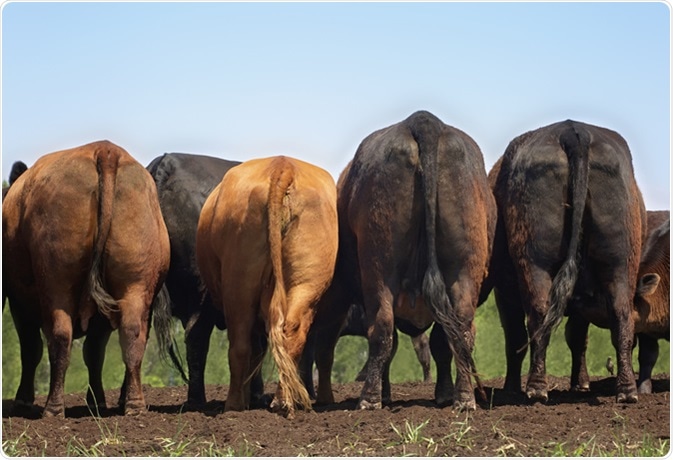Skip to:
Cutting meat from one’s diet has become increasingly popular for a number of reasons, including health and environmental concerns.
Vegan diets are characterized by the avoidance of animal products, including meat, eggs, and dairy. A vegan diet brings with it a unique set of nutritional and health considerations.

Image Credit: Foxys Forest Manufacture / Shutterstock
The vegan ethos
The vegan diet is particularly popular among younger people, and especially women. In 2006, 1.4% of the US population was vegan, and this increased to 3.4% by 2015.
The central idea around veganism is to avoid animal-based foods due to environmental reasons, ethical concerns regarding the treatment of farm animals, the use of chemicals such as growth stimulants in farm animals, and health advantages.
While the general plant-based contents of veganism hold true, there are several choices vegans can make, which are often influenced by their reason for becoming vegan.
The most extreme are those who eat so-called “living food”, which is uncooked vegan food such as seeds, vegetables, and nuts.
A large number of possible variations in what it means to be vegan can make it challenging to study how veganism impacts health.
Effects of veganism
Research on the effects of vegan diets has primarily focused on two areas: health and environmental impact.
Health studies show that vegan diets are associated with being thinner, having lower cholesterol, and having lower blood pressure, among other health benefits. This is primarily attributed to both food intake and modulation of the gut microbiome. However, long-running studies establishing the actual effectiveness of the diet and separating the effects from other factors are lacking.
Similarly, it can be challenging to assign a validated correct value to the environmental burden of meat-eating.
Several international collaborations have shown that food can be a massive emitter of greenhouse gases through production, transport, storage, cooking, and waste.
Reasons include inefficient use of land, both in terms of grazing animals and in the food used to feed livestock and methane released by livestock.

Beef cattle. Image Credit: Critterbiz / Shutterstock
Studies that have compared meat eaters to vegans and vegetarians have estimated that meat-eaters have a carbon footprint that is more than double the footprint of vegans.
Specifically, meat-eaters are estimated to have greenhouse gas emissions of 7.19 kgCO2e/day compared to 2.89 kgCO2e/day for vegans. Therefore, there is some support that vegan diets can be effective for individuals who change their diet for environmental reasons.
Recommendations for vegans
Because a lot of commonly consumed nutrients from meat and dairy are omitted from a vegan diet, there are some dietary recommendations for vegans that are generally made. These can be in the form of natural sources, fortified foods, or through pill supplements.
Among vitamins, B-12 and D are advised to be supplemented. Foods can be fortified with B-12 to allow vegans to consume B-12 as part of their regular diet, in foods such as fortified soy beverages and nutritional yeast. Vitamin B-12 can also naturally be found in some breakfast cereals. Vitamin D can be found in drinks such as orange juice.
Other essential nutrients that usually need to be supplemented in a vegan diet are calcium and zinc. While calcium is common in many staple vegan foods such as leafy green vegetables and tofu, it usually needs to be complemented with calcium-fortified foods such as fruit juices.
Zinc is also common in many vegan staples, such as grains and legumes, but vegans should be careful to consume enough of these to balance out the high phytate content of a classic vegan diet.
Healthy fatty acids, such as omega-3, is common in fish, and thus often missed out on in vegan diets.
Vegans are recommended to eat foods rich in n-3 fatty acid ALA, such as walnuts and soy products, and n-3 fatty acid DHA, such as soy milk and cereal bars. This is especially important for pregnant and lactating women, who may wish to use additional supplements of long-chain n-3 fatty acids.
Sources
- W.J. Craig (2009) Health effects of vegan diets. The American Journal of Clinical Nutrition. https://doi.org/10.3945/ajcn.2009.26736N
- Scarborough, P. et al. (2014) Dietary greenhouse gas emissions of meat eaters, fish eaters, vegetarians and vegans in the UK. Climatic Change. https://doi.org/10.1007/s10584-014-1169-1
- Medawar, E. et al. (2019) The effect of plant-based diets on the body and the brain: a systemic review. Translational Psychiatry. https://doi.org/10.1038/s41398-019-0552-0
Further Reading